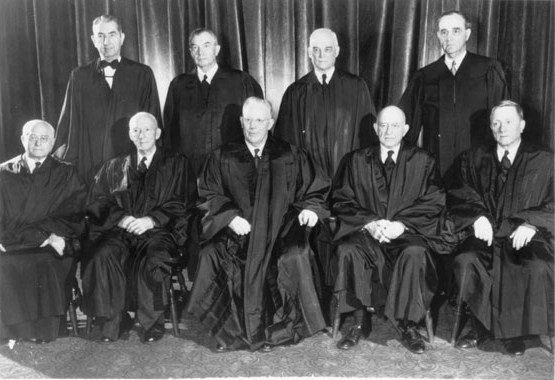It happened today - May 17, 2015
 On May 17, 1954, the United States Supreme Court made one of the most important rulings in its history in Brown v Topeka. And it finally made a ruling on race that was important without being awful, overturning the appalling 1896 Plessy v Ferguson upholding segregation that was itself second only to the disastrous 1857 Dred Scott ruling (effectively legalizing slavery throughout Northern as well as Southern states) in the Supreme Court’s history of awful rulings on race. But for all its merits there was a problem with Brown.
On May 17, 1954, the United States Supreme Court made one of the most important rulings in its history in Brown v Topeka. And it finally made a ruling on race that was important without being awful, overturning the appalling 1896 Plessy v Ferguson upholding segregation that was itself second only to the disastrous 1857 Dred Scott ruling (effectively legalizing slavery throughout Northern as well as Southern states) in the Supreme Court’s history of awful rulings on race. But for all its merits there was a problem with Brown.
Specifically, this landmark 1954 ruling reached the right conclusion in the wrong way. Instead of focusing on process and law, it was concerned with sociology and outcome. In his opinion for the unanimous Court, Chief Justice Earl Warren largely set aside legal theory for the insights of modern psychology. Which is no way to conduct jurisprudence.
In essence the Court ruled that separate schools for blacks were unconstitutional because they tended to make them feel inferior, whereas the correct reason for finding such schools unconstitutional was that they treated blacks differently, regardless of motive or outcome. If intentionally shabby treatment had inspired blacks to a sense of pride and high achievement it would still have been legally obnoxious and constitutionally unsound, just as assault is not only a criminal offence if it succeeds.
Doing the right thing for the wrong reason is not an innocent habit. And this instance had significant implications for the future. With the Court emboldened by its success, and any scruples liberals might have had about so-called “substantive due process” swept away by the obvious rightness of opposing racial segregation, the American judiciary increasingly exceeded its mandate and set social policy according to progressive preferences instead of interpreting the constitution according to its text.
Brown even had a major international impact, inspiring enthusiasm for activist judges in many countries including Canada, whose 1982 Constitution reflects our left’s curious habit of affecting to despise things American while eagerly emulating them.
To repeat, Brown was the right decision. But it was reached in the wrong way, unnecessarily and with negative impacts lasting to our own day.